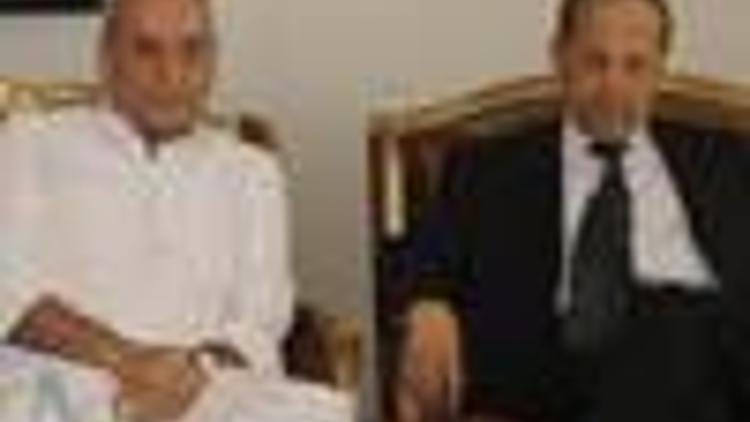Rival Lebanon leaders clinch deal to end crisis
Güncelleme Tarihi:

Rival Lebanese leaders clinched a deal on Wednesday to end an 18-month political feud that exploded into deadly sectarian fighting and threatened to plunge the nation into all-out civil war. (UPDATED)
The agreement, announced after days of tense talks in
US-backed Prime Minister Fuad Siniora described the deal as a "great achievement in... the history of
The two sides had been negotiating since Friday in an Arab-mediated bid to end a political standoff that erupted into deadly street battles this month, the worst sectarian unrest in
Wednesday’s accord was hailed in
Lebanese themselves reacted with relief but were also wary it might be only a temporary reprieve for their deeply divided nation.
"Hopefully this is not a band-aid solution and is a long-lasting one, people need to live in peace," said Aleco Assaf, 64, as a long-running opposition protest that turned the heart of Beirut into a virtual ghost-town was finally coming to an end.
The deal calls for the election of army chief Michel Sleiman as president, the formation of a unity government in which the Syrian- and Iranian-backed opposition has a veto, a new election law and a ban on the use of weapons in internal conflict.
Under the accord, parliament speaker Nabih Berri was to convene lawmakers within 24 hours for the vote but a senior aide to Siniora said lawmakers would now meet on Sunday.
The rival factions had agreed last year on electing Sleiman as the successor to
But the Sunni-led government and the mainly Shiite opposition had long differed over power-sharing and a new electoral law and parliament has previously put off 19 attempts to vote for a new president.
The ruling majority will have 16 seats in the cabinet and be able to choose the prime minister while the opposition will have 11 seats with the power of veto.
Another three posts will be nominated by the elected president, who under
Paul Salem, director of the Carnegie Middle East Centre, said the deal would create a "new balance of power" in
David Welch,
"It is a necessary and positive step toward accomplishing what the Arab Leagues initiative on
In the Middle East, backers of both Siniora’s government and the Iranian- and Syrian-backed opposition hailed the deal along with former colonial power
The crisis erupted in November 2006 when six pro-Syrian ministers quit the Siniora cabinet, which has the support of Washington and regional powerhouse
It degenerated into street battles in early May which saw fighters from Hezbollah and its allies temporarily seize control of large swathes of west
Disagreements over Hezbollah’s large arsenal also proved a stumbling block in the talks, with government representatives insisting that it be on the agenda and the Shiite militant group saying the issue is not up for discussion.
Hezbollah was the only movement not required to disarm after the civil war, saying their weapons were a means to defend the country against

